90 F. high in the Twin Cities Sunday, first 90 F. high of 2014.
84 F. average high for July 6.
92 F. high on July 6, 2013.
.13" rain fell in the Twin Cities Sunday.
July 6 in Minnesota Weather History. Source: Twin Cities National Weather Service:
2000:
Torrential rains douse the south metro of the Twin Cities with 8 inches
in a three to five hour span in a small part of northern Dakota county.
The hardest hit was the city of Eagan. Many homes were flooded.
1955: Tornado hits Marshall, leaving one dead and 13 injured. Hail causes one million dollars in damage.
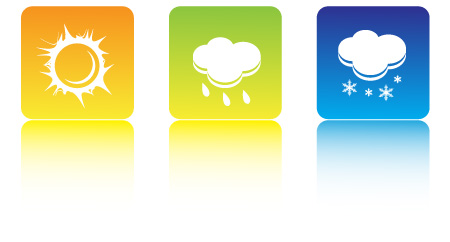 Blowing in the Wind
Blowing in the Wind
Hibbing's
own superstar poet Bob Dylan said it best. "You don't need to be a
weatherman to know which way the wind is blowing." Yes sir.
With
smartphone apps and thousands of web sites anyone can troll the Internet
for Doppler radar, even weather models. But ask any farmer, pilot or
fishing enthusiast - with a keen knowledge of cloud types, wind
direction and barometric pressure you can make a pretty accurate 12-24
hour forecast.
"Are we getting severe storms?" my wife quizzed me
yesterday afternoon. Winds had already swung to the west-northwest, and
it's rare to get severe weather behind a cool frontal passage. Most
T-storms pop up with a south or southeast breeze. Our heaviest rains and
winter snows often come with a northeast breeze at the surface.
The
atmosphere moistens up from top to bottom: a ring around the moon (22
degree halo) is often a tip-off of precipitation to come.
Yesterday's
90F high was the first of 2014; and about as hot as it's going to get
looking out 10 days. T-storms drop up to half an inch later today and
tonight; dew points in the 40s by Wednesday night will mean half as much
water in the air. A thundery Friday gives way to sunny 80s next
weekend.
.42" rain predicted from this afternoon into tonight in the Twin Cities (00z NAM model).
Cool Bias Northern USA This Week.
A clipper-like systems sparks another wave of showers and T-storms
across the Upper Midwest later today and tonight, pushing into the
Northeast and New England by Wednesday. Afternoon convection flares up
across the Rockies, scattered T-storms along a southward sagging cool
front across the Southeast.
Cooling Trend.
After peaking at 90 F. Sunday temperatures top 80 F. today before the
next round of showers and storms arrive; highs holding in the 70s
Tuesday, Wednesday and possibly Friday as well. Dew points drop into the
comfortable 40s by late Wednesday and early Thursday before warmer,
stickier air returns in time for next weekend. The next chance of
T-storms: Friday, as the next sloppy warm front approaches. Meteogram:
Weatherspark.
High Water, Heavy Rain Slow Boating across Minnesota.
It's a slow-motion summer on many Minnesota lakes as high water has
forced no-wake zones. A boom for kayakers and paddleboarders but many
businesses are suffering. Here's a video and story clip from
The Star Tribune: "
The July 4th holiday weekend usually is the busiest of the year on Lake Minnetonka and many other Minnesota lakes and rivers. Not this year. After the state’s second-wettest June ever,
record-high water levels have restricted boating, littered rivers with
debris and made creeks too fast and dangerous for paddling. That’s
affected everything from swimming to canoeing and boating, turning
normally raucous lakes full of jet skiers, wake boarders and water
tubers into tranquil lakes dotted with a few slow-moving sailboats and
fishing boats..."
Early Flood Prediction Gets a Boost from Space.
Live Science has an interesting story about new satellite-based flood prediction techniques; here's the introduction: "
Researchers
have figured out a new way to predict which rivers are most at risk of
dangerous flooding. To do so, they measured how much water was stored in
a river basin months ahead of the spring flood season.
"Just like a bucket can only hold so much water, the same concept
applies to river basins," said lead study author J.T. Reager, an earth
scientist at the University of California, Irvine..."
Image credit above: "
Missouri River flooding in 2011". Credit: NASA/Jesse Allen and Robert Simmon.
Hurricane Arthur Makes History With Its Landfall. NPR and
KQED have the interview; here's an excerpt: "
Hurricane
Arthur is dampening the July Fourth weekend along the eastern seaboard.
It's the earliest hurricane to make landfall in North Carolina since
records began in the mid-19th century. For more, Robert Siegel speaks
with Jeff Masters, the director of meteorology for the Weather
Underground."
They Have Seen The Future of the Internet, and It Is Dark. How will the 'Net grow and mature? Empowering tool or ultimate privacy nightmare? Here's an excerpt of a sobering read from
The New York Times: "...
Pew’s
Internet Project, in collaboration with Elon University’s Imagining the
Internet Center, surveyed 1,400 high-profile technology thinkers.
Collectively, the experts posited new government crackdowns on online
freedoms, greater surveillance and less trust online, and the squelching
of individual creativity through control by big companies. There are
even dangers from the personalization of content: That customization, a
way of limiting information overload, was also seen as a threat to
healthy serendipity in what we read, watch and think about..." (photo credit: LinkedIn).
3 Things Everyone Should Know Before Growing Up. This essay at
NPR struck a nerve; here's a clip: "...
Is
a person's intelligence a fixed quantity they're born with? Or is it
something malleable, something that can change throughout the lifespan?
The answer is probably a bit of both. But a large body of research
suggests you're better off thinking of intelligence as something that
can grow — a skill you can develop — and not as something set in stone.
Psychologist Carol Dweck and her colleagues have been studying implicit
theories or "" about intelligence for decades, and they find that
mindset really matters. People who have a "growth mindset" typically do
better in school and beyond than those with a "fixed mindset..."
The Longevity Gap. Costly new longevity drugs could help the wealthy live 120 years or more – but will everyone else die young?
Aeon Magazine has a fascinating article that explores the ability to live longer, if the price is right; here's a clip: "...
What
will happen when new scientific discoveries extend potential human
lifespan and intensify these inequities on a more massive scale? It
looks like the ultimate war between the haves and have-nots won’t be
fought over the issue of money, per se, but over living to age 60 versus
living to 120 or more. Will anyone just accept that the haves get two
lives while the have-nots barely get one?.."
TODAY: Sunny start. Clouds increase. PM showers & T-showers. Winds: W 10. High: 82
MONDAY NIGHT: Showers and possible T-storms. Low: 62
TUESDAY: Mostly cloudy, breezy & cooler. High: 76
WEDNESDAY: Partly sunny, comfortable. Dew point: 52. Wake-up: 59. High: 77
THURSDAY: Plenty of sunshine, a bit milder. Wake-up: 58. High: 81
FRIDAY: Unsettled. Showers & T-storms. Wake-up: 63. High: 79
SATURDAY: Partly sunny, sunburn potential. Wake-up: 64. High: 83
SUNDAY: Hazy sun, humid. Just warm enough. Wake-up: 67. High: 86
Climate Stories...
Climate Change Threatens National Security. Not my headline, but from retired Rear Admiral of the Navy David Titley; here's an excerpt from
The Pittsburgh Post Gazette: "...
I
used to be something of a skeptic about climate change. I have a Ph.D
in meteorology. I know how complicated the weather system is and how
difficult it is to predict accurately the weather even a few days in
advance. But climate is not about predictions of a specific day’s
weather months or years in the future. It’s understanding the trends:
hotter or colder, wetter or drier, trends in sea level rise and in
severe storms. Over the years, scientific findings on climate change
have built to the point where we simply cannot afford to ignore them.
And this is true no matter what your politics might be. The climate
doesn’t care about politics..."
U.K., U.S. Militaries Prepare for Severe Global Warming Consequences?
Unwarranted alarmism? I hope so, but are we prepared to live with the
consequences in case the 97-98% of climate scientists are right? Here's
an excerpt from
DeSmogBlog: "
Two new reports prepared for the U.K. and the U.S.
militaries suggest that the consequences of climate change are immense
in scope and will create severe, sustained challenges for the world and
its growing population. The fifth edition of Global Strategic Trends, prepared for the U.K.
Ministry of Defence, says climate change will likely create a lengthy
list of defence and security implications in the next three decades..." (photo credit above: U.S. Navy).
Dark Snow: From the Arctic to the Himalayas, The Phenonemon That Is Accelerating Glacier Melting.
The only thing worse than yellow snow is dirty snow - shades of gray
decrease albedo and increase the rate of melting, as described at
The Guardian. Here's an excerpt: "...
The phenomenon of "dark snow" is being recorded from the Himalayas to the Arctic
as increasing amounts of dust from bare soil, soot from fires and
ultra-fine particles of "black carbon" from industry and diesel engines
are being whipped up and deposited sometimes thousands of miles away.
The result, say scientists, is a significant dimming of the brightness
of the world's snow and icefields, leading to a longer melt season,
which in turn creates feedback where more solar heat is absorbed and the
melting accelerates..."
Photo credit above: "
Dark deposits on icefields in Greenland, which absorb more sunlight and lead to faster glacial melting." Photograph: Henrik Egede Lassen/Alpha Film.
Two Approaches to Tidal Politics.
Maybe we can pass a law preventing seas from rising, at least if we
live in North Carolina. Here's an excerpt of a Sunday Op-Ed from the
Editorial Board at
The New York Times: "...
The
politics of climate change are veering in starkly different directions
in the neighboring states of North Carolina and Virginia. Foolhardy
denial about the severity of rising seas is underway in North Carolina,
where the Republican Legislature, prodded by tourism-dependent coastal
counties and alarmed homeowners, ordered a state commission
of experts to soften its estimate that coastal waters could rise 39
inches by the end of the century. The commission was told to revise its
outlook, take into account dissenting views of climate change and
produce a forecast of no more than 30 years — in hopes of keeping the
estimated sea-level rise to no more than eight inches..." (photo credit: NOAA).
When Beliefs and Facts Collide. Here's a clip from a story at
The New York Times: "...
Mr.
Kahan’s study suggests that more people know what scientists think
about high-profile scientific controversies than polls suggest; they
just aren’t willing to endorse the consensus when it contradicts their
political or religious views. This finding helps us understand why my
colleagues and I have found that factual and scientific evidence is
often ineffective at reducing misperceptions and can even backfire on
issues like weapons of mass destruction, health care reform and vaccines. With science as with politics, identity often trumps the facts..."

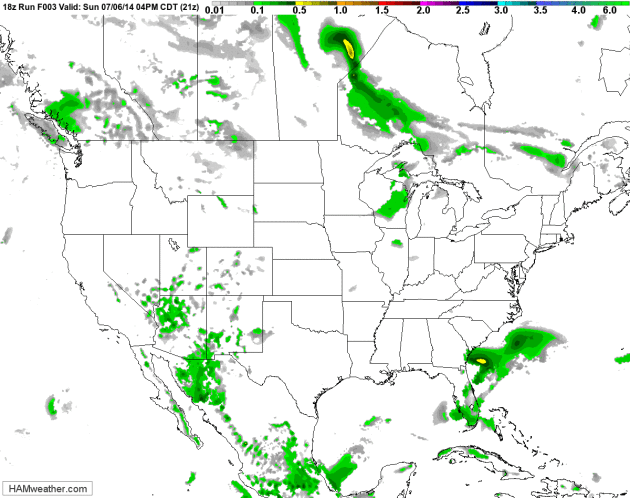
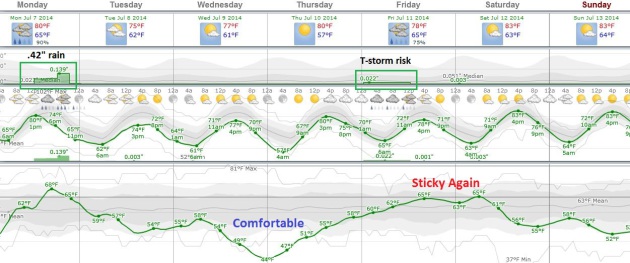
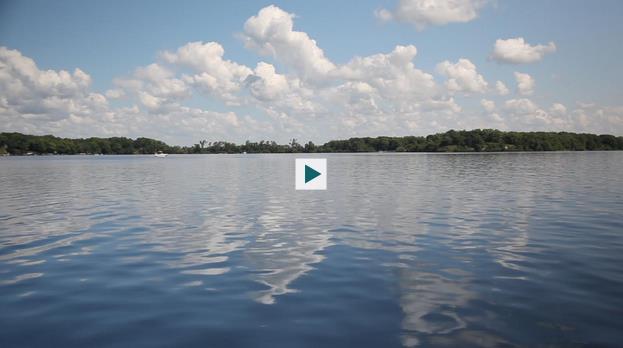
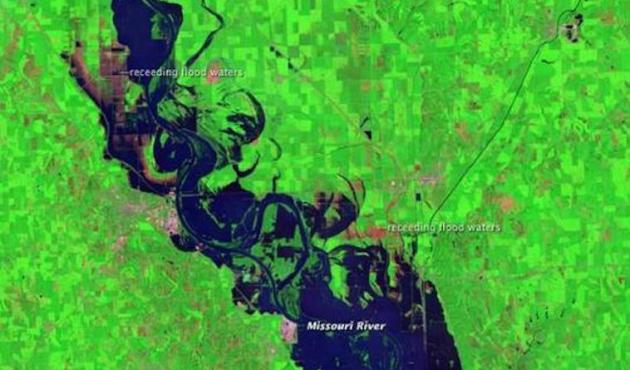
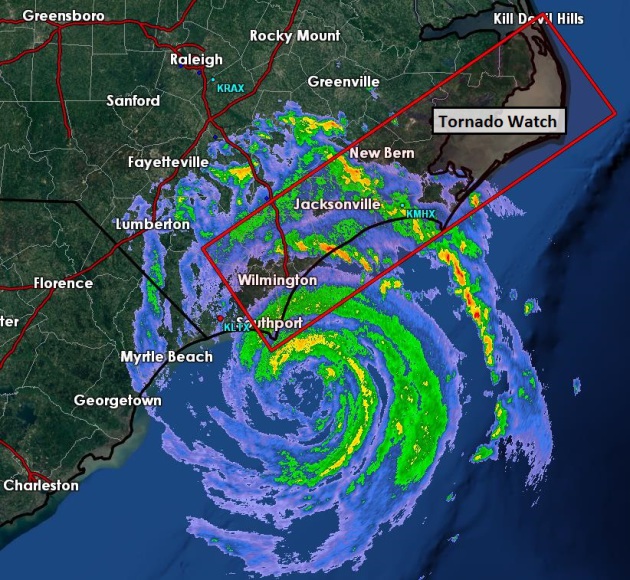



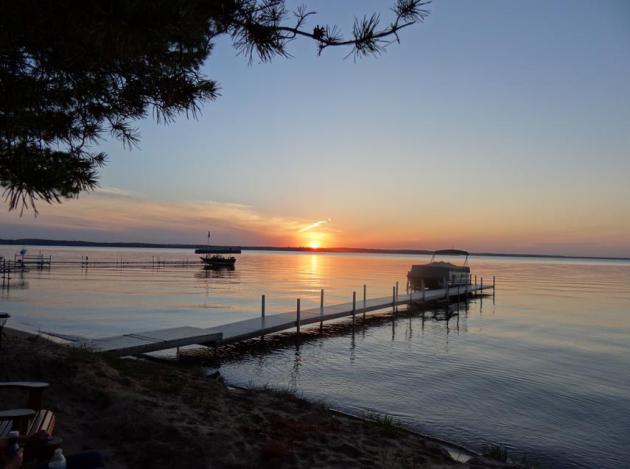
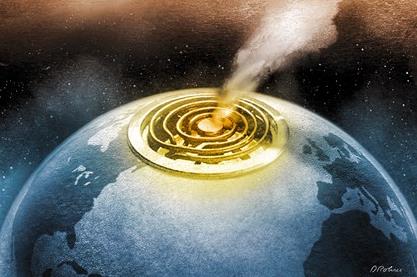
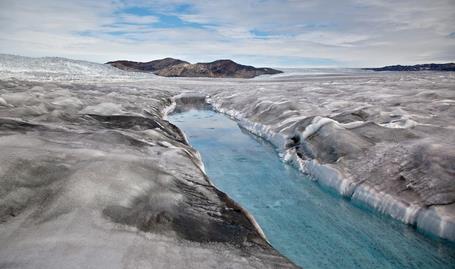
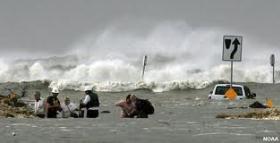


No comments:
Post a Comment